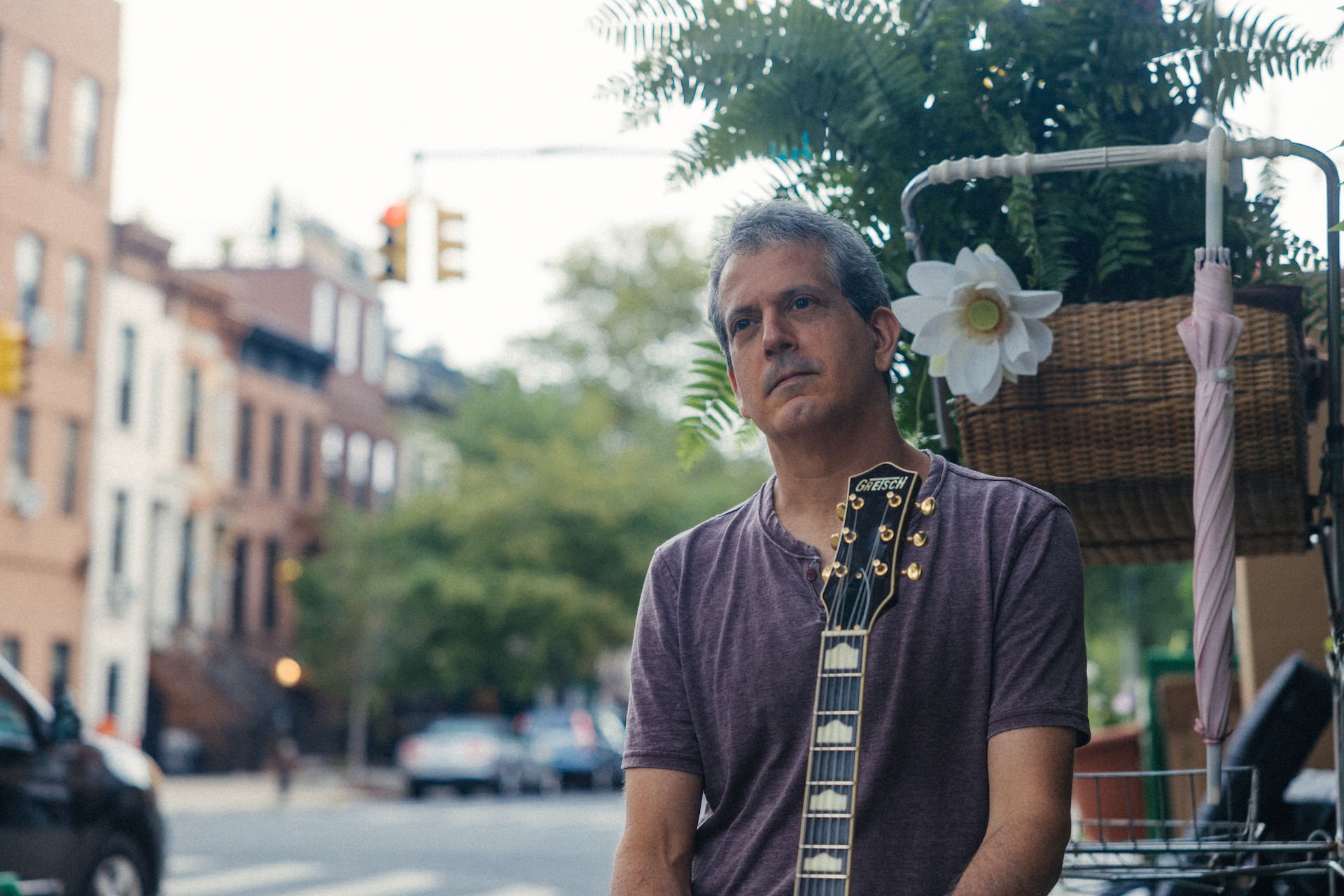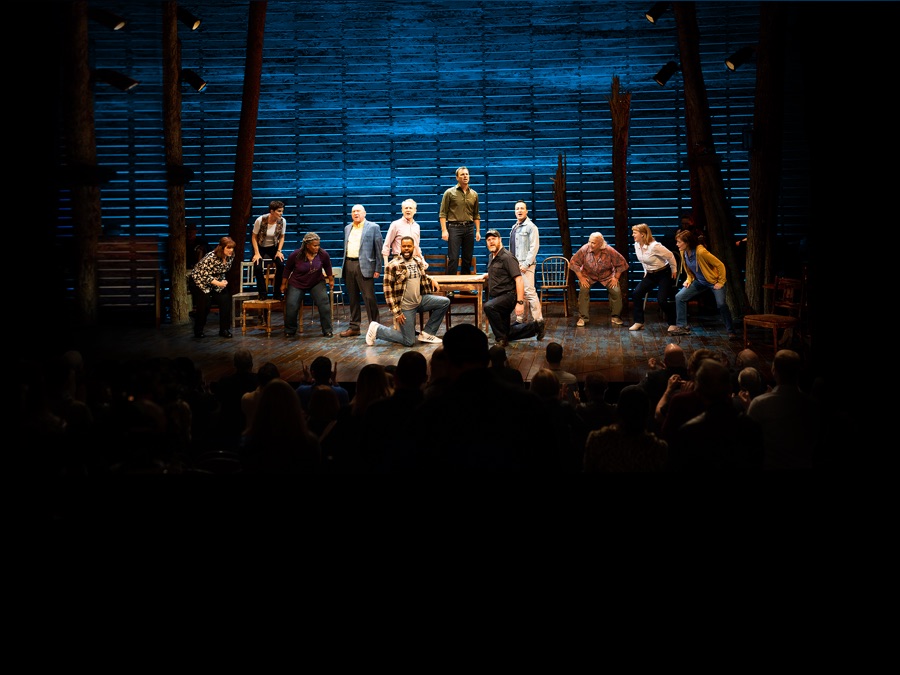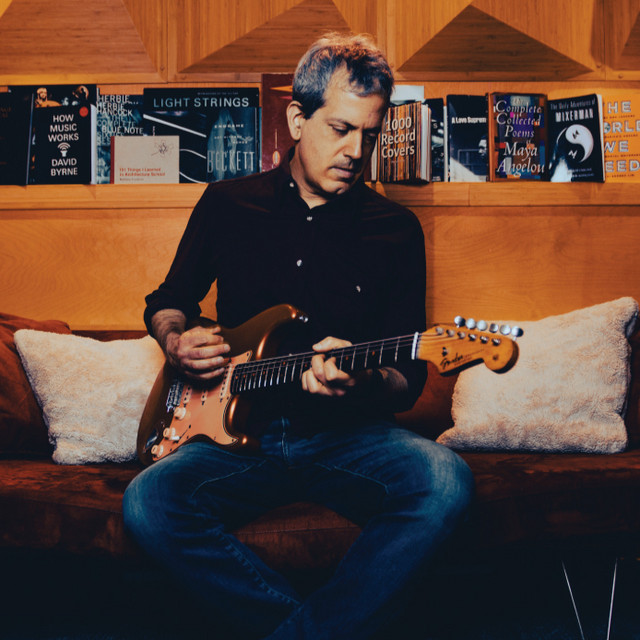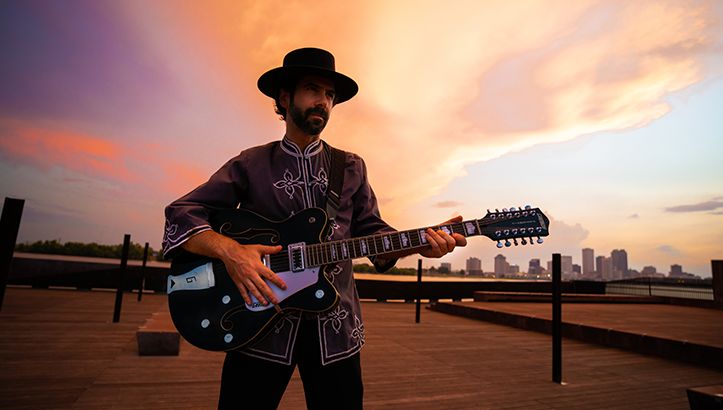Alec Berlin: a sideman finding his own spotlight in NYC

The life of a sideman guitarist is controversial in nature. While he has the opportunity to share the stage night after night with the most diverse celebrities, few people really get to know him, and even fewer people know that even a sideman can have a beautiful solo work to show, even a body of work, as is the case of our guitarist from Ohio now residing in New York, Alec Berlin.
Berlin already shared the spotlights with Elton John, James Taylor, Rob Thomas, Ben Folds, Kenny Wheeler, and Rufus Wainwright; has performed in dozens of Broadway shows including Rent, Wicked, The Lion King, and Bright Star (written by Steve Martin and Edie Brickell); and has appeared on The Late Show with David Letterman, The Tonight Show Starring Jimmy Fallon, and Good Morning America. Since 2017, Berlin has been playing in Come From Away, including in the film version currently streaming on Apple TV+.
Now, Berlin has decided to release the Single/EP “Patchen Avenue“, which brings simple, fast songs that, necessarily, directly touch the soul of those who listen to them. What turns out to be the great differential of this work is precisely the fact of discarding vocals. “I thought – well, what if I DON’T write lyrics? What would that mean? How could I keep the music interesting without lyrics? Is it possible that the end result would be even MORE INTERESTING than if this music had lyrics?“, sighs Berlin.
The fun fact is, despite having the address of New York in the title, a city that not only serves as a context but also an inspiration for Berlin, “Patchen Avenue” got its name in the most improvised way possible, from a friend’s suggestion that the track should be named after a place. “I guess it makes sense to me because there’s a tranquility to this song, and I like the idea of paying tribute to a place that gives you a sense of peace. That’s why I named it Patchen Avenue“, says Berlin about the address in Brooklyn, one of the coolest places in NYC for those who want to live and breathe art.
Before I moved to here, someone told me that the good thing about New York is that, since everything is available all the time, you have to be very clear about what you want to do- because you can always do virtually anything else! I think that’s a very good observation.
Alec Berlin
2 5 Things about Alec Berlin
RC – Hello Alec… How are things over there in the United States?
AB – Hey hey! Here in NYC it’s cold and wintry. I prefer that to when it gets hot and sticky in the summer, but still – cold and wintry and dark makes it tough to get things done!
RC- Let’s talk about your EP, “Patchen Avenue”. You probably have a good story for choosing this name. What happened on this avenue that gave you so much inspiration?
AB – Well. Song titles… The truth is that when I wrote all of these songs none of them had titles, because I wrote them pretty quickly, one right after the other. It’s instrumental music, after all, so no lyrics, no chorus or anything that gets repeated over and over, so there were no obvious titles. But then I had to actually physically write the songs down on paper so that my bandmates could play them on a gig. At that point, I NEEDED titles, so that I could tell everyone what song we were playing! At first I just named them Alpha, Beta, Delta, Sigma, etc. I just finished one song, named it after a Greek letter, and then moved on to the next.
I mentioned this to a friend of mine, and he told me that he was really good at coming up with titles for things. That took me by surprise – partly because of his confidence was so direct, and partly because it seems like such a strange thing to be good at, thinking of titles. So I decided to enlist his help. He didn’t actually come up with the title “Patchen Avenue”, but he did give me the idea that this song should be named after a place. I guess it makes sense to me because there’s a tranquility to this song, and I like the idea of paying tribute to a place that gives you a sense of peace. That’s why I named it Patchen Avenue.
RC – “Patchen Avenue” reminds me, at times, of the solo career of Paul Westerberg (The Replacements). Who do you draw inspiration from when writing your chords?
AB – Well… I wrote “Patchen Avenue” right after I bought a new guitar, a Danocaster guitar. It’s an amazing guitar that can do anything, really, but it definitely has a kind of country slant to it. And it’s very resonant, so when you play chords they just kind of ring effortlessly and endlessly. So the song just sort of fell out of the guitar, pretty easily.
I’ll tell you this, though – I recorded it 3 or 4 times. We kept experimenting with different tempos until we finally settled on the right one. But each time, I did a fully orchestrated, recorded demo of the entire arrangement. So… the writing part was easy, the recording part was tougher.
RC – Your music can be understood, in my view, as an alternative rock. I mean, it’s an easy and pleasant song to listen to, different from what we see in the “instrumental” genre out there, a bunch of people showing off. Why the choice of instrumental, after all?
AB – Most of the music that I listen to has singing. My ear naturally gravitates towards that kind of standard-fare, 3-minute pop song. I love lyrics, I’m awed by the beauty of some people’s lyrics. I’ve made a couple of records of songs with vocals – so I have some experience with that kind of music. It’s incredibly humbling – writing lyrics is really hard! – but it’s also really rewarding.
But I just didn’t want to make that kind of record. At the time that I wrote these songs, I was playing a lot of gigs with an instrumental trio, and we were pretty improvisational. That’s just where my brain was at. I was really focussed on playing the guitar, trying to improve my playing, etc. That’s how I wanted to spend my time.
But because my ear is naturally inclined towards 3-minute rocks songs, the music that I was writing tended to be less about long improvisational guitar playing and more about simple song structures. So I faced a decision – should I direct my attention away from the guitar and undertake the huge task of writing lyrics to these new songs, which musically seem to call for lyrics? I didn’t WANT to do that, but if the music dictates that I need lyrics, shouldn’t I listen to the music and give it what it needs – ie, lyrics?
And then I thought – well, what if I DON’T write lyrics? What would that mean? How could I keep the music interesting without lyrics? Is it possible that the end result would be even MORE INTERESTING than if this music had lyrics?
I’ll give you a specific example. In a normal rock song, verse 2 is typically the same as verse 1 except for one thing – the lyrics are different! So, in my music, I needed to try to figure out some way to make verse 2 different from verse 1 that doesn’t rely on lyrics – because there are none!
Patchen Avenue is a perfect example. There are actually THREE verses in Patchen Avenue, and they are all subtly different from each other. Verse 1 is just rhythm guitar, lead guitar, and drums. In verse 2, the bass joins in. And in verse three, there’s a harmony lead line blending with the main melody line. That’s an orchestrational technique I used to try to create contrast, development, and to maintain interest.
So, anyway – the idea of how to keep things interesting, keep things developing, maintain a sense of contrast, WITHOUT lyrics but in a context of music that USUALLY involves lyrics – that sounded like a cool challenge. I knew that it would involve experimenting with different effects, different guitars, different recording techniques, different orchestration techniques, etc. And that sounded really interesting to me. So that’s why I chose to not write lyrics.
RC – What is it like, mainly, to have the city of New York itself as the main inspiration for your work?
AB – New York is a lot. Like any relationship, you go through phases – sometimes everything feels great, other times it requires a bit more work than you want. Nearly all bands tour through New York, so you can see just about anybody. And there are amazing musicians who live here, so there’s always something inspiring going on. And there’s great culture and diversity of course in areas besides music too. But it’s also important now how to turn it all off and just enjoy some peace and quiet.
So, we wanna know now what did you think about Alec Berlin’s sound!





